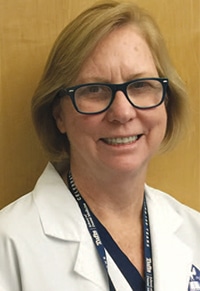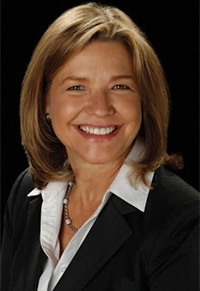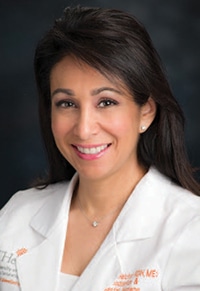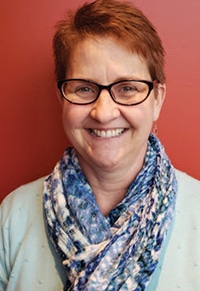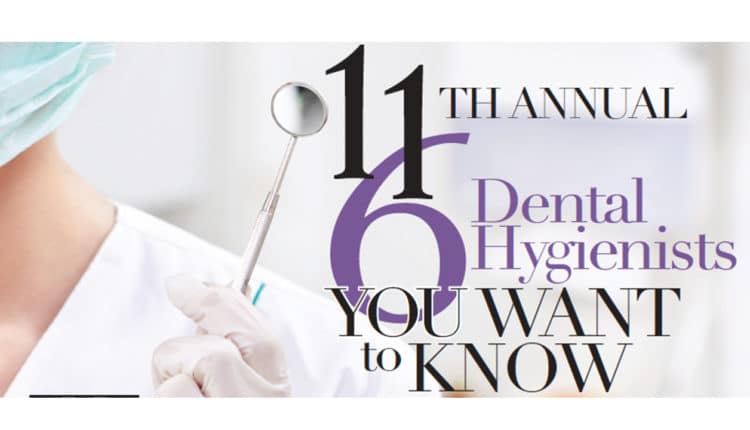 RAZYPH/ISTOCK/THINKSTOCK
RAZYPH/ISTOCK/THINKSTOCK
Six Dental Hygienists You Want to Know
In the 11th edition of this annual feature, Dimensions of Dental Hygiene recognizes the best and the brightest in academia, clinical practice, industry, “mover and shaker,” public health, and research.
This year we again honor those dental hygienists who have made a significant difference within their areas of expertise—academia, clinical practice, industry, “mover and shaker,” public health, and research. These visionaries have sculpted their own careers and made a significant impact on the field of oral health.
ACADEMIA
An assistant professor in the Department of Public Health and Community Service at Tufts University School of Dental Medicine (TUSDM) and the Director of the Tufts Statewide Community Dental Program in Boston, Kathryn Dolan, RDH, MEd, has more than 20 years of experience in academia and 30 years of experience in public health. She is expert in establishing community-based dental programs for children and adults with intellectual and developmental disabilities. Dolan has worked at TUSDM for the past 22 years and is currently the course director for oral health promotion, epidemiology, and Boston public school-based pediatric clinic rotation. She also co-teaches the health literacy intensive course and is on the Advisory Board of Tufts Dental Central, which is designed to encourage civic engagement, support community service, and build cultural awareness at TUSDM. With a love of mentorship, Dolan works with students who are interested in special care dentistry, community-based dental programs, and health literacy. Her work in school-based oral health programs continues to receive grant funding.
What was a pivotal event in your life that shaped your career aspirations?
Pivotal moments come down to individual patient successes, great and small, one life at a time. One of my more memorable events involves a young girl with an intellectual disability who could not talk. She was noticeably challenged by misaligned teeth that would not allow her to close her lips completely and interfered with her ability to chew. Her appearance was compromised, and she sought refuge by avoiding interaction with classmates, teachers, and others. Challenged to communicate with her, but understanding the difficulties she faced, I made the effort and took the time to offer encouragement and establish trust. Routine oral disease prevention services were provided, but it was obvious the child’s malocclusion required significant orthodontic correction. A host of barriers stood in the way of initiating treatment because of a lack of insurance and family resources, high cost, and limited access to providers. Driven to be part of a solution and having an understanding of available community resources, I found an orthodontist willing to provide treatment. Over time, as the orthodontic treatment slowly started working, changes began to appear. The young girl’s teeth started to realign and her occlusion corrected to allow her to close and purse her lips. She was able to use her teeth and tongue to properly make sounds—she began to talk. Her confidence grew as she began to smile. And, her inner beauty bloomed in keeping with a physical appearance that was transformational. The little girl, who used to seek lonely solitude, became a young woman working at a fast food restaurant in the public eye, smiling with customers, and carrying on teenager conversations like everyone else her age. I will never forget this patient.
After this experience, I began working with local dental hygiene schools to have the students shadow public health dental hygienists, so they would have an opportunity to work with patients who have special needs.
CLINICAL PRACTICE
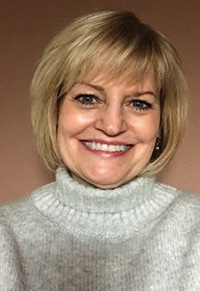 Kelly Reich, RDH, BS, has been practicing clinical dental hygiene since 1982, working in general and periodontal practices in Idaho Falls and Boise, Idaho. Her high-quality, compassionate, and empowering care has generated a cadre of loyal patients. While she has spent time teaching at Idaho State University and developing community programs for underserved populations, Reich has never stopped working in clinical practice. She also currently serves as the dental hygiene director of the Western Regional Examining Board where she is responsible for test development and administration of three licensure examinations: dental hygiene, local anesthesia, and restorative.
Kelly Reich, RDH, BS, has been practicing clinical dental hygiene since 1982, working in general and periodontal practices in Idaho Falls and Boise, Idaho. Her high-quality, compassionate, and empowering care has generated a cadre of loyal patients. While she has spent time teaching at Idaho State University and developing community programs for underserved populations, Reich has never stopped working in clinical practice. She also currently serves as the dental hygiene director of the Western Regional Examining Board where she is responsible for test development and administration of three licensure examinations: dental hygiene, local anesthesia, and restorative.
What are some key factors in your ability to develop such loyal relationships with your patients?
Doing what is best for the patient has always been my philosophy. Clinical dental hygiene is repetitive, and it is easy to become complacent doing the same tasks every hour of each day. I try to approach patients as if I am seeing them for the first time and asking myself what I can do to help improve their oral health.
When I began my career more than 30 years ago, the practice of dental hygiene was considerably different from today’s standards of care. The patient care I provided was evidence-based, but the complexity and treatment of periodontal disease were different. I performed fewer procedures in my early career, but that did not mean I provided less care.
Throughout my profession, I have also learned that developing a level of trust with patients is key to patient compliance and acceptance of dental hygiene treatment. If patients do not believe I am concerned about their oral health needs, they are less likely to accept treatment and more likely to question the rationale. Establishing a professional relationship takes time. It sometimes occurs in one appointment or it may take several appointments. Above all, my goal is to establish good communication to help patients understand their role and responsibility in maintaining their oral health and understanding the reasons why I propose specific, individualized dental hygiene treatment to meet their needs.
Informing patients what is scheduled during their appointment provides me an opportunity to discuss their care and transition into the scheduled procedures. My patients like to know I am performing an intra- and extraoral cancer screening, taking their blood pressure, or completing a full mouth assessment. With a limited amount of time at each appointment, I have learned to prioritize my treatment, yet engage patients in the process.
Working in the same office for more than 20 years, I have been able to observe the improvement in my patients’ oral health. We have shared the successes and setbacks associated with periodontal disease but, whatever the outcome, I try to convey to patients that we are more successful together in maintaining their oral health.
I enjoy that I have become more skilled and knowledgeable in the field of dental hygiene and that I am able to pass this knowledge onto my patients. They appreciate learning and are grateful that I share my ideas and thoughts with them.
INDUSTRY
As manager of professional relations and communications for Chicago-based Sunstar Americas Inc, Jackie L. Sanders, RDH, MBA, serves as a liaison responsible for communications with professional and industry associations, educational institutions, and the dental professional community. She is a recognized and active opinion leader within the dental hygiene community and associated social networking programs.
Prior to joining Sunstar in 2008, Sanders worked in clinical practice for 13 years, provided consulting services to several dental manufacturers, and held an adjunct faculty position at her alma mater, Weber State University in Ogden, Utah. She currently serves on committees for the American Dental Education Association, American Dental Hygienists’ Association Institute for Oral Health, and the American Academy of Pediatric Dentistry. Inspired by a true passion of helping others to achieve their personal goals, Sanders deeply believes in furthering the career progress of entrepreneurial dental hygienists by supporting their ideas with her inspiration.
You have a passion for helping others achieve their personal goals. How does this manifest in your personal and professional life?
For the past 10 years, I have been honored to be part of Sunstar Americas Inc, a member of the Sunstar Group companies. The global organization is headquartered in Switzerland and serves oral health professionals and consumers in 90 countries. Sunstar’s mission is to enhance the health and well-being of people everywhere to achieve better health and an enhanced quality of life.
Sunstar’s mission aligns with dental hygienists’ passion—to improve the health of their patients. My work with Sunstar has enabled me to align programs within the dental industry that support both missions. Whether my passion led me to my current role or my current role helped to define my personal passion, it has become evident that I live my work. I have found a unique way to intertwine the two.
To recognize dental hygienists who are fulfilling the Sunstar motto, the company has sponsored the Sunstar RDH Award of Distinction for 18 years (2002) and the Sunstar World Dental Hygienist Awards since 2007. These programs recognize dental hygienists who have made significant contributions to science, patients, communities, and the general public. Sunstar embraces dental hygienists’ expertise and their ability to help others achieve good health.
As manager of professional relations, I have had the opportunity to represent Sunstar within the dental industry. This is a responsibility that is never taken lightly and has always made me proud. I accepted the job knowing the focus Sunstar had on quality products, bringing solutions to the dental professional, and valuing the voice of the professional when designing and marketing new products.
I was asked, “You have a passion for helping others to achieve their personal goals. How does this manifest in your personal and professional life?” This question stumped me for days until I realized my professional life was my personal passion. The dental community is smaller than many believe, and the more you are involved, the tighter the community becomes. Build your network, take the opportunity to say “yes,” and, as often as possible, connect with individuals who may be your key to achieving your next goal. Networking is the golden ticket.
“MOVER AND SHAKER”
Margo Y. Melchor, RDH, MEd, EdD, is the director of community outreach and an associate professor at the UTHealth School of Dentistry (UTSD), University of Texas Health Science Center at Houston. While teaching at UTSD, she served as the Student American Dental Hygienists’ Association advisor for 10 years. In addition, years ago, Melchor began her role as the faculty advisor for the Hispanic Student Dental Association (HSDA) which is composed of dental and dental hygiene students, and promotes team dentistry and inclusivity. Serving as the faculty advisor of the HSDA led to active membership within the Hispanic Dental Association (HDA) and her serving as president from 2011 to 2012. Now as a HDA past president, Melchor sits on the organization’s Board of Directors. She is also a founding member of the Greater Houston Hispanic Dental Association, serving as president in 2007.
Melchor maintains a busy schedule, as she also serves as a board member for the following: Texas State Board of Dental Examiners; Sesame Street Workshop Educational Outreach Oral Health Initiatives Program; Colgate-Palmolive Partner’s Board, which is a global group of oral health scientists and academicians; and San Jose Clinic, a ministry of the Archdiocese of Galveston-Houston that provides quality health care and education to those with limited access to such services in an environment that respects the dignity of each person.
Supporting the needs of the underserved is another passion, and Melchor works with the UTSD Office of Development to obtain funding to support efforts to improve access to underserved populations, via special events, mobile dental van efforts, and community partnerships. Lastly, Melchor has been awarded with local and national honors for her outreach and leadership.
You were appointed to the Texas State Dental Board. Discuss briefly what this entails and why this is important for dental hygienists.
The mission of the Texas State Board of Dental Examiners (TSDBE) is to protect the public’s health and safety and promote high-quality and safe dental care by providing enforcement, licensing, peer assistance, and related information services to licensees and their patients. Last November, I was proudly appointed by Texas Governor Greg Abbott as one of the three reputable registered dental hygienist members who reside in this great state and have been actively engaged in the practice of dental hygiene for at least 5 years. In my case, it’s actually 26 years of experience in private practice, education, and administration.
For a dental hygienist, being named a TSDBE member is a great honor! This role provides the opportunity to collaborate with six dentists and two public members who review, revise, and/or set forth rules and regulations to achieve and promote the highest standards of patient care and professional conduct.
Board members also preside in informal settlement conference hearings. This experience requires great review and understanding of documents presented in addition to testimony, so you are able to decipher the appropriate actions and/or measures to ensure the dental welfare of the citizens of Texas. This duty reminds me of how I proudly recited the dental hygiene oath at my graduation from dental hygiene school more than 25 years ago by upholding my personal and professional commitment to improve the oral health of the public and never lower the standards of care. Therefore, this honorary position provides me the opportunity to continue that pride I felt on May 25, 1991.
PUBLIC HEALTH
As a newly minted dental hygienist in 1989, Corinna S. Culler, RDH, DrPH, participated in an international medical/dental delegation, sparking her interest in public health. She soon realized that access to dental care was a problem in the United States, as well as internationally. Culler continued to work as a dental hygienist while returning to school to further her education. Her passion for public health and academia were united when she joined the faculty of Boston University’s Goldman School of Dental Medicine (BUSDM) in 2001.
At BUSDM, Culler helped to develop a school-based oral health prevention program within Chelsea, Massachusetts public schools. This program began with oral health education and screening for all students and the application of dental sealants for second graders. In response to Chelsea’s high-risk population, which includes many newly arrived immigrants and refugees, and high rates of decay, the program evolved to include sealants and fluoride varnish for all elementary grades. BUSDM also opened a full service dental clinic in one of the Chelsea schools where Culler treated patients once a week for many years.
After earning a Doctorate in Public Health from BU School of Public Health, Culler was promoted to assistant professor and director of school-based programs, which has expanded to include a team of 11 people providing services to more than 60 schools in five Massachusetts cities. In addition, Culler is part of a team of faculty who provide first-year dental students with service learning experiences by having them participate in oral health programs in Boston’s public schools. Over the years, she has participated in training nondental professionals in oral health issues, conducting research on providing oral health counseling and evaluation during children’s well-child visits, and implementing a statewide children’s oral health survey. Dedicated to improving the oral health of all Americans, Culler is also a member of a variety of oral health committees at the state and national levels.
Your public health advocacy has focused on children. Describe your work and the outcomes you strive for.
As a member of the Better Oral Health for Massachusetts Coalition and similar groups, I have advocated for standardized oral health data collection, fluoride varnish application at medical well-child visits, and statewide water fluoridation. We promote policies that support school-based programs and public health dental hygienists, such as direct reimbursement and the ability to apply dental sealants without examination by a dentist. I am a founding member of a statewide alliance that aims to increase standardization and collaboration among portable and mobile dental care providers. I also encourage our dental students to get involved with oral health advocacy and increasing access to care. These efforts aim to decrease decay rates and improve access to care for children of all ages in Massachusetts.
RESEARCH
 Alice M. Horowitz, RDH, MA, PhD, is a research associate professor in the School of Public Health at the University of Maryland-College Park. As a health educator researcher, her career focus has been on dental caries primary prevention and closing the gap between what researchers know about evidence-based disease prevention and what practitioners do. Horowitz’s research efforts have been dedicated to educating the public, providers, and policy makers on how to prevent caries. In the past few decades, her research has examined dental caries prevention through a health literacy lens, looking at health care providers’ and low-income pregnant women’s knowledge, understanding, and behaviors relating to caries prevention.
Alice M. Horowitz, RDH, MA, PhD, is a research associate professor in the School of Public Health at the University of Maryland-College Park. As a health educator researcher, her career focus has been on dental caries primary prevention and closing the gap between what researchers know about evidence-based disease prevention and what practitioners do. Horowitz’s research efforts have been dedicated to educating the public, providers, and policy makers on how to prevent caries. In the past few decades, her research has examined dental caries prevention through a health literacy lens, looking at health care providers’ and low-income pregnant women’s knowledge, understanding, and behaviors relating to caries prevention.
Horowitz’s interest in dental caries prevention stems from her work at the National Institute of Dental and Craniofacial Institute, where she organized two National Institutes of Health Consensus Development Conferences on caries prevention and developed a tool kit to implement community-based caries prevention regimens. Her research in health literacy focuses on closing the dental disparities gap in the United States. For the past 7 years, Horowitz has been a principal investigator on grants whose objectives were to conduct a statewide assessment of oral health literacy in connection with the prevention of dental caries. The findings are being used to inform state policy to reduce dental caries in young children.
What questions do you hope to see answered in oral health research of the future?
There are many questions I would like to see addressed in oral health research. However, the more important question is how do we get research findings applied by appropriate user groups? We know how to prevent dental caries. Yet, this disease remains the most common childhood disease in the US. The appropriate use of fluorides and pit and fissure sealants is our best weapon against caries, yet too few dental providers apply dental sealants. And overall, the general public does not understand that community water fluoridation is a safe and effective public health approach to prevent decay. Another example is that now we have a vaccine to prevent five cancers caused by the humanpapilloma virus (HPV). Guardasil 9 is recommended for males and females ages 9 to 47. Yet, the uptake of this preventive regimen is very low. Further, most health providers are not advocating its use, including dental providers. How do we get dental providers involved in promoting HPV vaccines?
Additionally, ample evidence demonstrates that dental therapists are well-qualified to provide the dental care they are trained to do. Despite their use in most civilized countries, they are not accepted by many American dentists. Alaska and Minnesota are the current exceptions, with other states also implementing or considering this approach to providing much needed care to those who need it most. Dental therapists could reduce oral health disparities.
While there will always be additional research that needs to be done, we should likely focus on applying research findings that are available that will reduce the dental disease burden on our citizens.
From Dimensions of Dental Hygiene. December 2018;16(12):10,13–15.

